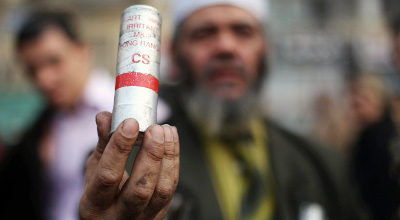Islamists Claim Egypt Election Victory, Christians Worry
Although Egypt is awaiting results from its first election since its February revolution, Islamists are claiming victory.
“Indications are that the Muslim Brotherhood’s candidates are maybe going to take about 40 percent of the seats in the Parliament for re-elections,” President and CEO of Open Doors USA Carl Moeller. “That’s within the expectations of our people there, and it is not unexpected.”
In line with what religious rights watchdog groups have been saying, the Muslim Brotherhood, kept in check by ousted president Hosni Mubarak, is emerging as the front-runner. That could mean trouble for Christians in the not-too-distant future.
“The Muslim Brotherhood is not necessarily the most extreme of the groups vying for power in Egypt,” Moeller says. “Recent experience also tells us that the Military Party also has not respected the rights of Christians over the last months and years, either.”
Hardline Salafists could form a majority in Parliament. Believers need to prepare for a different religious climate in which they can practice their faith.
“There have been significant reports of increased violence against Christians,” Moeller says. “We know Christians whose churches have been burned, and thousands who have been affected by extremist groups. Hopefully a new government will produce more protections for the Christians, but that’s not necessarily something that people are expecting.”
Christians turned out en masse to vote. With the early returns going to the Muslim Brotherhood, leaders of their party promise to strive for a non-military, non-religious state that respects human rights. However, Moeller isn’t so sure. “Even if the numbers I said about the Muslim Brotherhood are true, it doesn’t mean that there will be a majority of people in Egypt who are pro-Democracy, pro-Christian,” he says. “I think what the Christians are expecting is an increase in tension.”
It’s the first stage of a parliamentary election that will last until March. “We have concerns, but we’re still waiting to see what the outcome of the total count is all about,” adds Moeller. Results will reveal the political trends in a country that has not had a free vote in 60 years.
In a country with the Middle East’s largest Christian minority, recent practices of “tolerance” don’t hold a lot of weight. Attacks Monday against several Coptic communities left two dead, several wounded, and business and homes burned. With that kind of hostility going into the electoral process, Moeller says it’s no wonder that “many are fearing that there will be a decrease in the capacity of Christians to freely exercise their faith, (as well as) further restrictions on their public activity.”
Even as the votes are tallied, there is one thing believers can do. Moeller notes, “Religion and politics, particularly in this part of the world, are inseparable. It’s very appropriate for us to look at a religious response.”
Moeller reminds believers of 1 Corinthians 12:26: “If one part suffers, every part suffers with it; if one part is honored, every part rejoices with it.” He concludes, “A Christian response to this would primarily be a recommitment to pray for our brothers and sisters in the Middle East.”














































